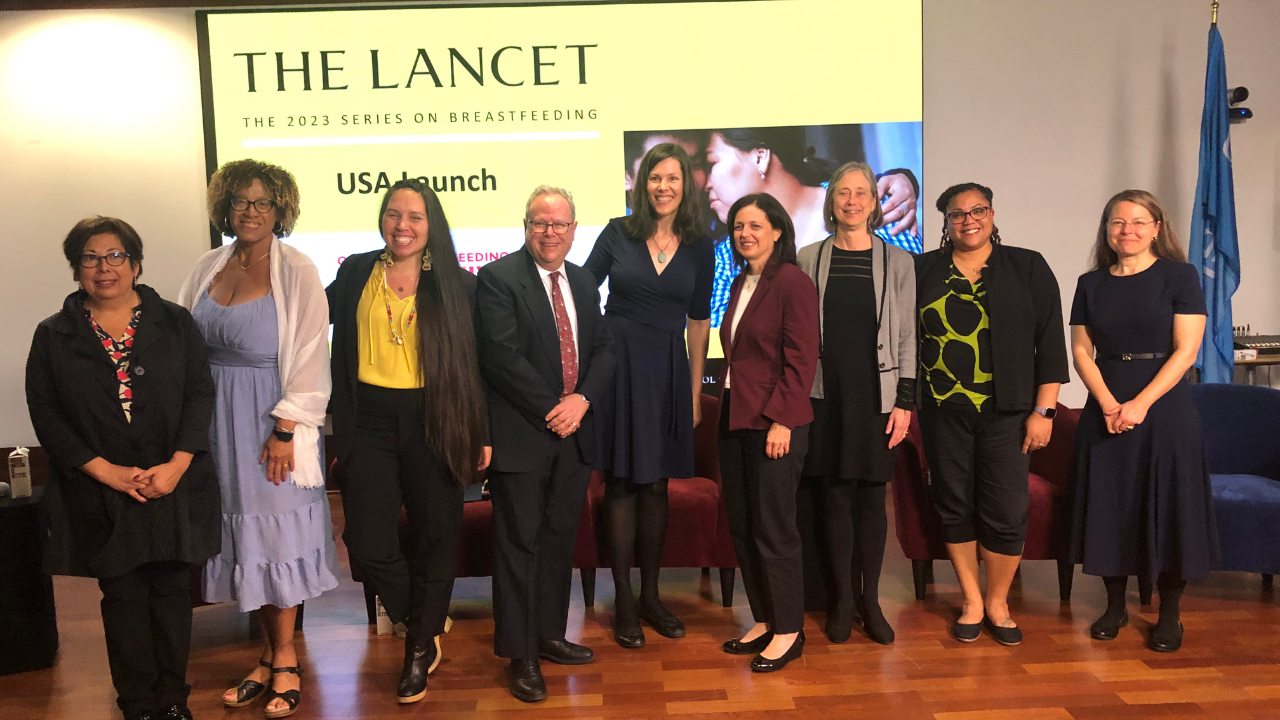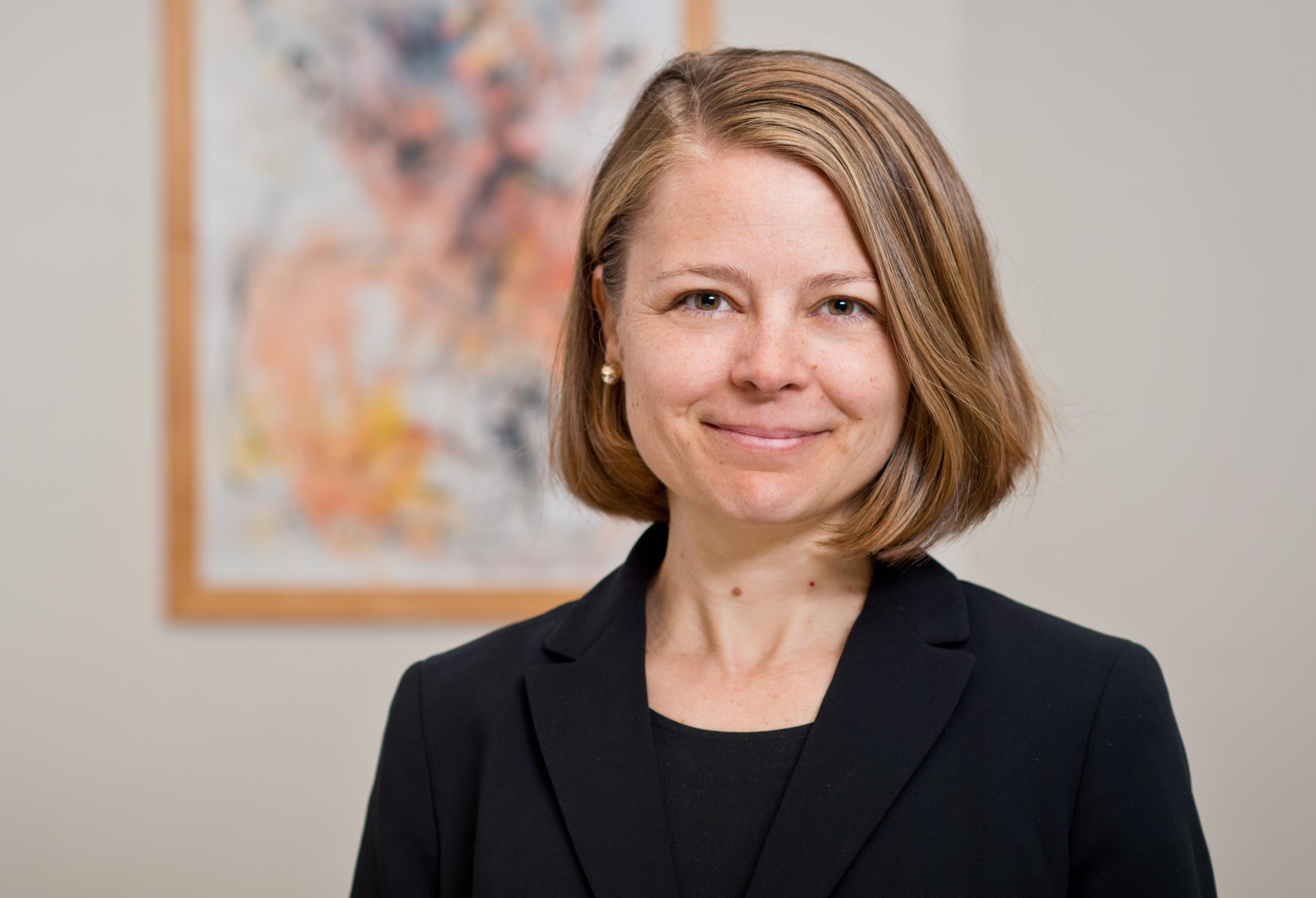
Economics, Breastfeeding and Global Public Health
Professor Kadee Russ Explores Corporate Lobbying's Impact on Global Health Policies
As a professor and chair of economics at UC Davis, Kadee Russ has dedicated her professional career to investigating how international trade and macroeconomic policies impact people. Her most recent research unearths how the U.S. government, under pressure from industry associations representing infant formula producers, has created obstacles for countries trying to implement World Health Organization (WHO) recommendations to promote breastfeeding. Her public-focused scholarship has made Russ a go-to expert on international trade and finance for media outlets such as the Chicago Tribune, The Economist, Newsweek, The New York Times, National Public Radio, The Wall Street Journal, and The Washington Post.
“I believe that it is our job as researchers to share what we find with the public so they can be informed and empowered,” Russ said. “Our mission is teaching, research and service; and public scholarship is part of that service we provide to the people of California and the United States. We are all public scholars at UC Davis. It’s why we are here.”
The human side of economic interdependence
Russ became interested in economics and public scholarship in high school when she won a spot in the Japan-U.S. Senate Exchange to spend a summer abroad. In Japan, she experienced open and caring personal relationships with her host family and classmates, but found them juxtaposed against a strained economic relationship between Japan and the United States.
“At that point, I decided I wanted to study economics and build some kind of bridge between our countries and cultures,” she said. “It seems economics was this really important linkage, and yet somewhere that mutual understanding from human-to-human contact gets lost in our policy debates over economic interdependence.”
Peace Corps experience illuminates local impacts of global economics
Another pivotal moment for Russ occurred during her time as a Peace Corp volunteer in rural Guatemala. Armed with a newly earned master’s degree in agricultural economics from Virginia Tech, Russ’s job was to help farmers organize to devise food storage options and sell directly to wholesalers so that they would not be forced to sell all their crops for lower prices during the harvest season or through middlemen.
While in Guatemala, Russ witnessed how small changes to currency exchange rates caused massive hardships for people. A relatively small change in the exchange rate for the local currency caused gas prices to rise, which in turn increased the cost of transportation. Russ watched as the ripple effect of price increases created such severe stressors that enraged protests where buses were set on fire broke out in cities, and village farmers found it harder to purchase imported fertilizer.
“That was extremely powerful,” she said. “That woke me up to the importance of exchange rate volatility and the impact it can have on people’s everyday lives.”
The experience made her want to pursue a doctorate in economics.

Public scholarship focused on children’s health
It was also in Guatemala that the genesis for Russ’ current work in public scholarship originated. While riding in an old school bus to reach a remote village, Russ found herself seated by an impoverished woman who was feeding her baby watered-down formula out of an old Coke bottle. The child showed signs of being malnourished; his belly was distended, and his hair was falling out.
“The image of that baby stayed with me for a long time,” Russ said. “Knowing the water issues there and seeing how the formula was diluted. That is where I saw the huge impact that public health policies, often shaped by lobbying by foreign companies, can have on people in developing countries.”
It wasn’t until decades later, when Russ was on leave from UC Davis working for the White House Council of Economic Advisors under the Obama administration, that this moment in Guatemala came full circle. Russ’s work for the Council as a senior economist for international trade and finance allowed her to see U.S. positions on international trade and global health take shape. While she saw the U.S. taking an active role to address famine and other global health challenges, she noted that some U.S. economic policies posed barriers for breastfeeding.
“I began to think about that baby in Guatemala suffering from malnutrition and my own experience of being discouraged from breastfeeding my son in the NICU and all of it came together,” Russ said. “I realized, wow, there is a real disconnect here between our economic policies and what is in the best interest of infants. The issue seemed to almost demand study.”
When she returned to UC Davis, a team of students helped her comb through public archives to get a clearer picture of U.S. global positions on health-related issues. Together, they found the U.S. government was trying to intimidate other countries who were implementing WHO guidelines that promote breastfeeding.
Since then, Russ has published several papers that reveal how global trade policy and pressures from commercial milk formula producers are negatively influencing health governance when it comes to infant and child health. Russ discovered that infant formula interests have ties to a large group of industries spending millions of dollars to influence U.S. positions toward the WHO, including to discredit WHO recommendations that promote breastfeeding.
“There is a coalition who are all lobbying at the same time on their own complaints about the World Health Organization, including infant health and nutrition. It’s worrisome because it’s not readily transparent and it takes a lot of time to find those details,” Russ said. She donated the documents she obtained, establishing the UC Davis Trade Policy and Health Collection at the UC San Francisco Industry Documents Library.
Russ has also unearthed efforts by the U.S. government to weaken regulation of infant formula marketing, which can often be misleading and competes with nutritional information from healthcare providers. Her work gained special attention during the global infant formula shortages in 2022. She was part of the 2023 Lancet Series on Breastfeeding, with the US launch of the series hosted by UNICEF, and her work is frequently cited by public health advocates, policy makers and journalists.
“I think our own formula shortage and our stance toward other countries' public health measures show economic policies very much aligned with industry benefit and not so well aligned with family benefit,” she said.
An internationally sought-after economic expert
Studying the impact of commercial milk formula companies on global health policies is just one aspect of Russ’ research.
On an international level, Russ has served as a research advisor at the Halle Institute for Economic Research in Halle, Germany; senior non-resident fellow of the Peterson Institute for International Economics; president of the International Economics and Finance Society; vice president of the International Banking and Finance Association; and co-organizer of the National Bureau of Economic Research International Trade and Macroeconomics Working Group. She also has been a visiting scholar at several central banks, including the Federal Reserve Bank of San Francisco.
In these roles she has served as an expert resource to state, national and international government officials, congressional staff, journalists, and community leaders by providing information on everything from the debt ceiling to community resilience during economic shocks, including testifying before the California Assembly Committee on Jobs, Economic Development, and the Economy on the potential impacts of trade wars.
Supported in crossing boundaries
Russ says she has been able to pursue not just one, but two professional paths as a scholar—a professor and a government and public policy professional—because of the supportive, interdisciplinary culture of UC Davis. She also says she feels encouraged to pursue research that, while “a little bit risky” because it focuses on the correlation between trade, economics, and public health, is so important for public awareness.
“My interests cross boundaries of the field. Instead of trying to fit me into a box, people at UC Davis said, ‘We love that here! Come be with us.’ So, it’s been great to study at the intersection of all the things that interest me and be supported in doing that,” she said. “At other universities I might be hushed up because I do look at the political economy side in an unvarnished way. But at UC Davis, they have helped me be brave in all this, and that has been tremendous for my research.”
